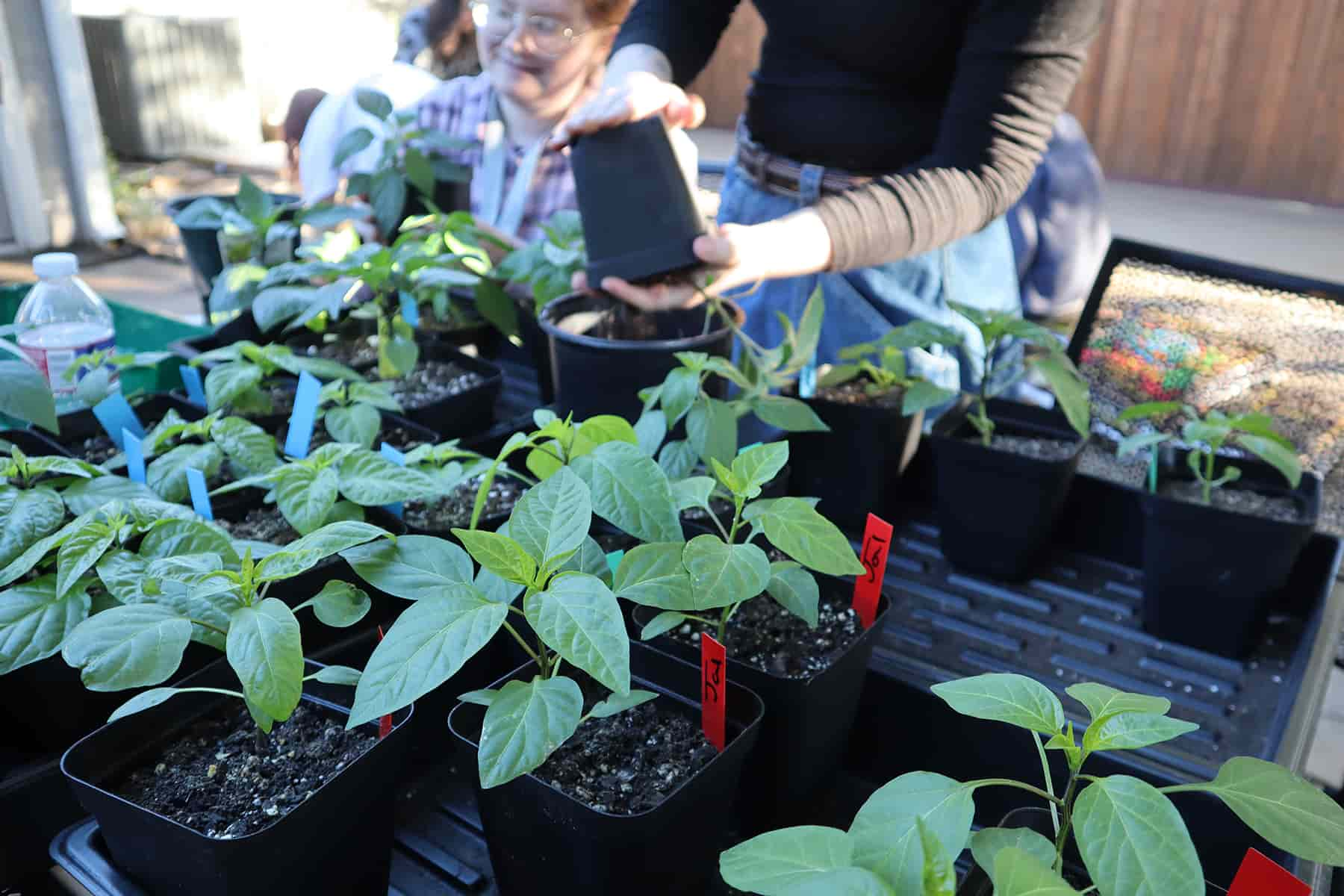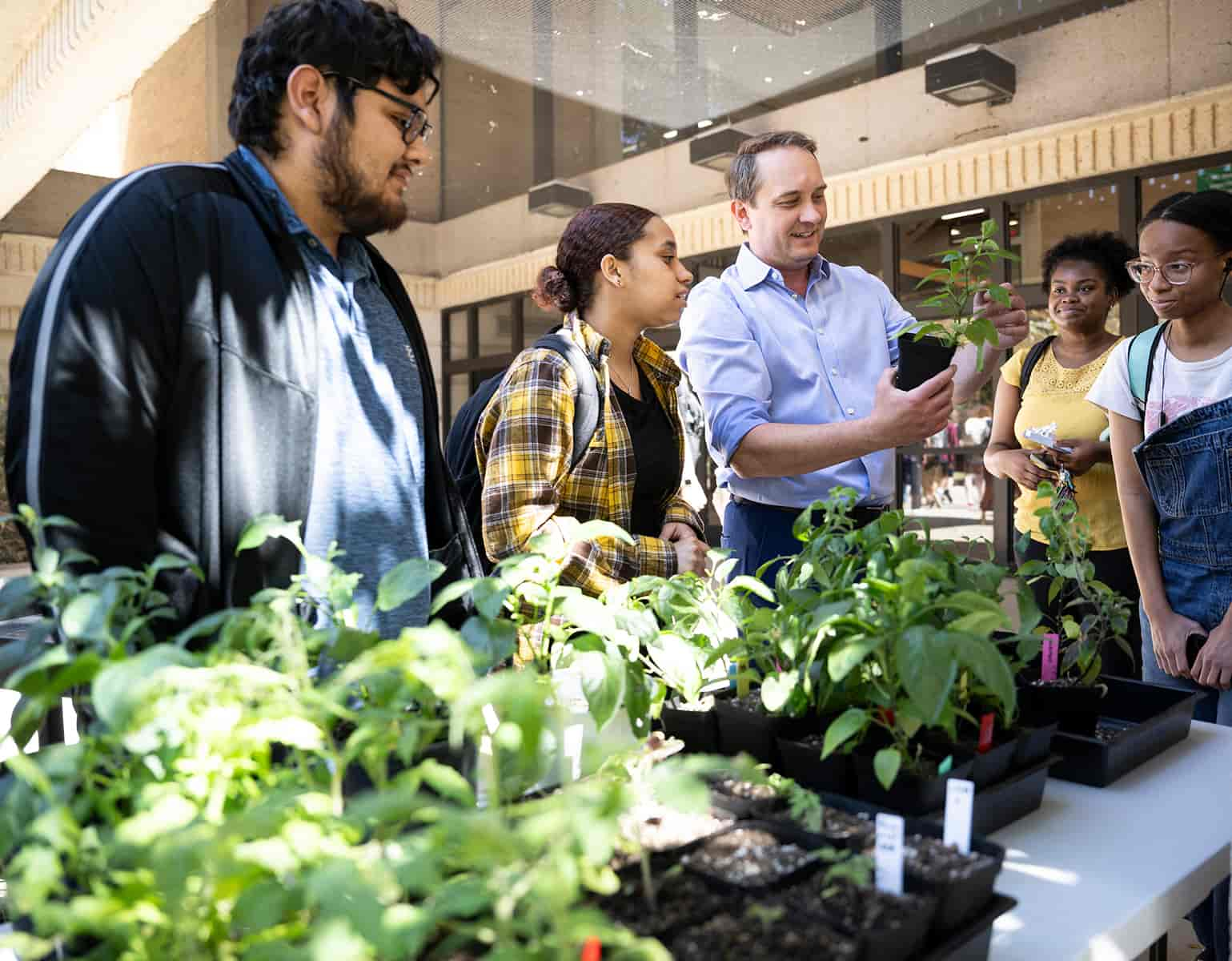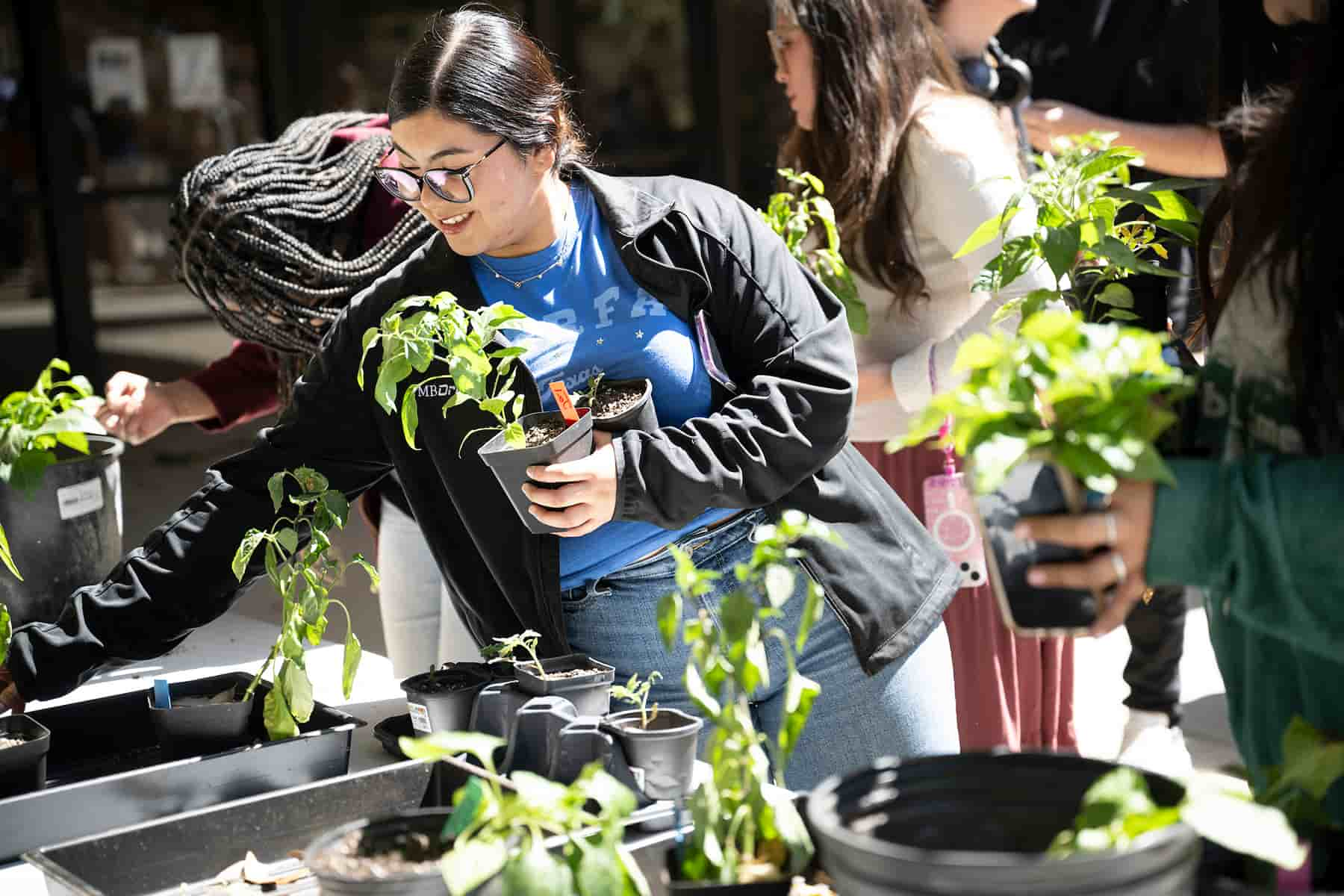
DENTON (UNT), Texas — On a sunny afternoon at the University of North Texas, students and faculty distributed free tomato and pepper seedlings to the Mean Green
community — a small but meaningful gesture rooted in a much larger vision. The giveaway
was part of a Department of History project that uses traditional agricultural practices to rethink how food is grown,
shared and studied on campus.
Known as the Milpa Agricultural Placemaking Project (MAPP), the initiative introduces
traditional food-growing practices to the UNT community through open-concept crop
planting and hands-on engagement. The four-year project has received funding from
the USDA’s National Institute for Food and Agriculture.
Michael Wise, associate professor and director of graduate studies in history, said
the project is named for an ancient agrarian practice that originated in current-day
Mexico and Central America.
“The milpa concept is the idea that agriculture can be accomplished in small spaces, and that
growing methods should respond to community needs,” said Wise, who co-leads the project
with associate professor of history Sandra Mendiola García.

Practitioners of milpa historically cultivated crops in underutilized spaces in cities and villages, rather
than in rural fields. Wise explained that UNT’s campus — which contains plenty of
unused space and its own micro-climates — is an ideal place to put milpa into practice.
“Our ultimate goal is establishing an edible landscape on the UNT campus,” Wise said.
“We also have research and curricular programs that are stepping stones towards that
goal.”
These steps include a partnership with the Texas A&M Urban Agricultural Research Lab
to identify best practices for agricultural work in on-campus spaces. This collaboration
will also help develop a curriculum for the UNT Food Studies Program, combining social science, agricultural science and farm management.
The MAPP project is planning off-campus opportunities as well, including an educational
partnership with a Denton-based community garden, future seedling giveaways at local
farmer’s markets and festivals, and the creation of a seed library for public use.
Wise explained that community outreach is one of MAPP’s biggest ambitions.
“We’re hoping that public engagement will get us in conversation with the communities
beyond our campus,” Wise said. “We want to use our food studies expertise at UNT to
connect with anyone who’s interested in food and agriculture.”

Another of MAPP’s community outreach projects is an online oral history database. The database, called the MAPP Oral History Collection, is a repository for multilingual interviews with community members involved in food
and agriculture. In addition to serving as an archival resource, the MAPP Oral History
Collection also helps researchers identify community needs and desires related to
foodways.
Amber Ada, a second-year master’s student in history and MAPP researcher, assisted
with oral interviews and planting for the seedling giveaway. She has enjoyed seeing
the UNT community become more curious about MAPP.
“I’ve spoken with a lot of undergrads who are really interested in what we’re doing,”
Ada said. “I hope it allows them to think about the spaces we all share and how we
can use them to their fullest potential.”
Sofia Stevens-Garcia, a MAPP research administrator and junior double-majoring in
history and Spanish, initially got involved for research experience. However, she
said the project has also made her passionate about food and green spaces on campus.
“I think it’s important that people understand the relationship between food and where
it comes from,” Stevens-Garcia said. “Doing this work on campus lets the UNT community
really engage with food and nature.”